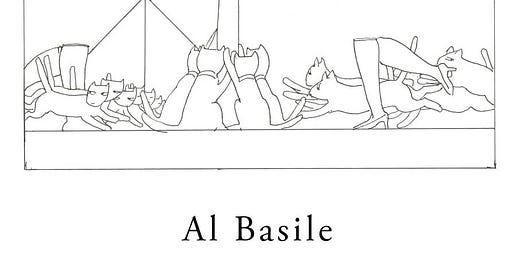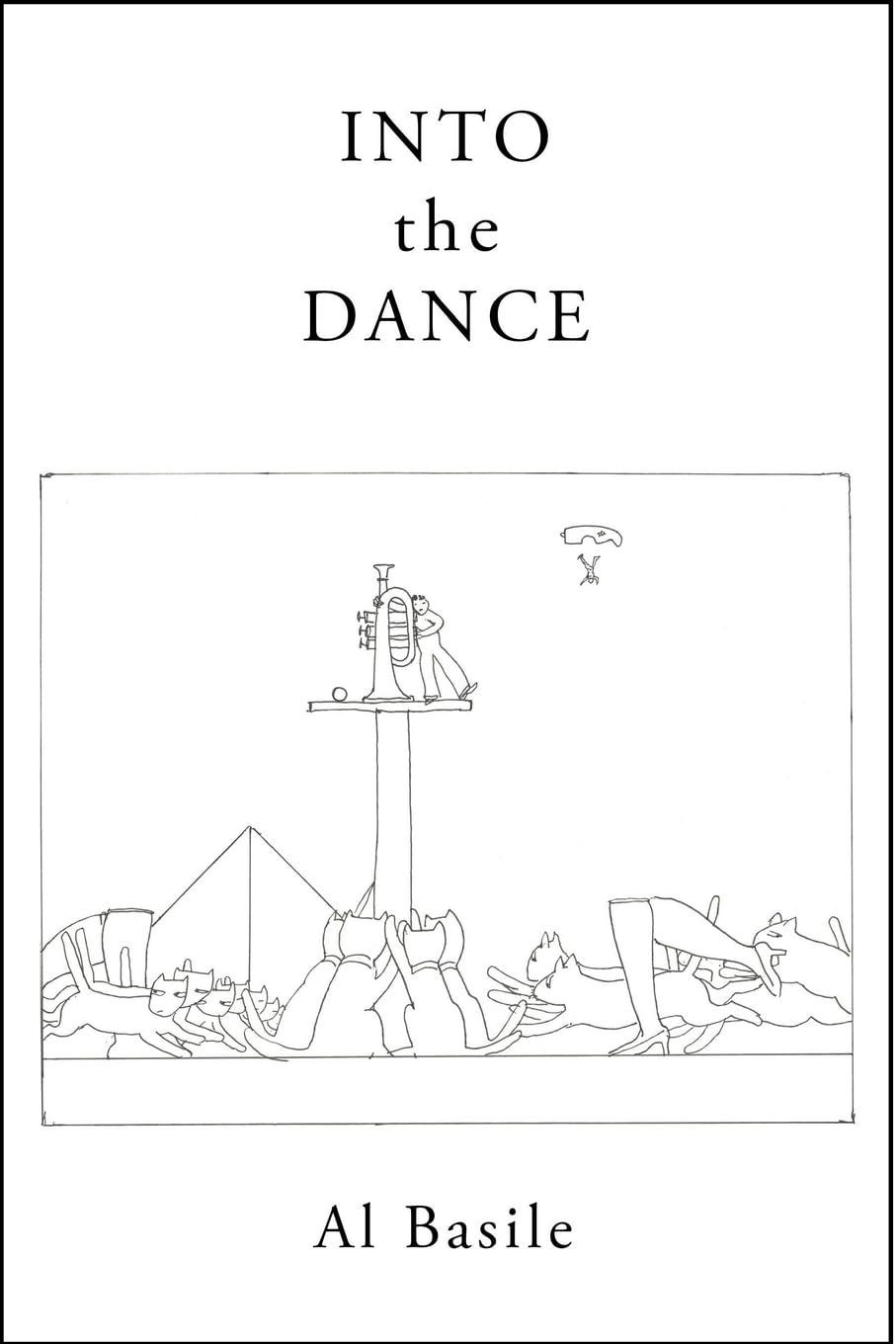Al Basile, Into the Dance. Winnikinni Press, 2025
Review by Zara Raab
In daily life, we mostly see the illuminated surfaces of events. Caught up in our lives, a person cannot always be aware of underlying events that prepare him for the person he becomes. When he discovers that person, a fully formed grownup in late midlife, a fait accompli, this person may seem incomprehensible—or simply extraordinary. Either way, he is certainly worth writing about, as Al Basile has remarkably done in his book Into the Dance.
Several pictures emerge. One is of the youthful Basile, an Ivy League white guy whose father was a park ranger, working on the fringes of the popular music industry at a time when—at least this is my sense of it—many young lives were singed if not burnt to a crisp by their aspirations and the size of the dreams put in motion by a few towering figures. Basile’s dreams began early. “Against the Odds, the Mood Strikes,” one of the funniest and most endearing of these metrically flawless poems, describes playing trumpet in a school marching band, “stepping carefully, // your bell too far away from you, too near / the man ahead, and any sudden move / will jam your mouthpiece back and crack a tooth.” But then the mood shifts,
It's then the melody you’re playing rises,
sits up on top, buoyed by the waves of rhythm.
that’s when you feel a part of something grand. In another poem, “Heartbreak Hotel,” Basile is still in grade school, in the basement of a friend’s house, when a voice from the radio shifts the trajectory of his life: “Well, since my baby left me. . . .” It was a voice “wet inside a rush of reverb, / shorn of other instruments” and would be followed later in Basile’s youth by “Memphis label mates” Wolf and Junior Parker.
Thus he began “living the dream,” a musician’s life he sustained riding on tour in a school bus with “bad shocks and bouncing seats that interrupt our sleep on overnights from gig to gig” just for “the chance to play”—those “few hours we spend on stage / each night” (“Living the Dream”). First trumpet player for Roomful of Blues in the mid-1970s, Basile would appear in the 1980s and beyond both as a writer and a horn player on albums and DVDs by Roomful founder Duke Robillard.
But it was a life on the periphery of the blues music centers like Memphis, New York or Chicago with performers who were well-known if not rich. It can’t have been easy, as Basile’s narratives of those days reveal. Some encounters were salient, like Basile playing trumpet for the Blind Boys of Alabama, which had agreed to make a recording of one of Basile’s own songs. The lead singer Bishop Billy Bowers is clearly surprised and impressed by Basile’s knowledge of the blues, and says,
“You know a lot about this music, don’t you?”
He smiled, a new surprise now in his voice.
“I learn about the things I love,” I said.
He nodded, grinned, kept facing straight ahead.
We did the job we came to do that day.
I tried to come up to him in the song,
And never worked so hard before or since,
I owed him my best; he gave me his. ("Blues for Billy Bowers")The encounter was brief and never repeated; Bowers died shortly afterward as a result of a car crash.
Basile also tells of playing for white kids at a community college in the mid-seventies with Johnny Shines, who often played in the solo style of Robert Johnson, legendary King of Delta Blues in the 1930s. “We backed him up with horns, in uptown style, / like we were a limousine that he / was riding in, with room to stretch his legs.” After, Johnson turns to the college kids. “People ask,” he says “if white boys”—like Al Basile and his fellow horn players— “can play blues.”
. . . He grinned and tilted
his head back, standing-up-straight hair inclined
to point at us. “Just listen to these boys.”
It seemed like he was saying we belonged.
But maybe he was being diplomatic. ("Blues Goes to College")To thrive even a decade in a milieu this intense, with the “broken promises” made over and again to “wife or girlfriend left at home each day” (“Living the Dream”) must have had its costs—exacted no doubt right from the lover’s heart. Indeed, Into the Dance opens with “A Lovers’ Quarrel,” and other love poems, insightful and unsentimental, appear throughout the collection, love poems to old friends, to his Italian grandmother and her cooking, to other poets and musicians.
“Living the Dream” foregrounds the poet’s stubborn loyalty to his dream, and the willingness on the dreamer’s part, back then, to bear that cost. A series of six poems each beginning “How I Learned. . .” envisions the peace this poet made with his choices and the joy he finds in the life he has made for himself.
If Al Basile were not also a talented poet and playwright of verse dramas, we might wrap up this review by applauding the sturdy serenity sustaining his long song-writing and trumpeting career. But he is, and we must note that since 2012, when he published his first book of poetry (winning the Meringoff Award for Poetry in 2015), he has gone on to publish three more books of poetry (Into the Dance being his fourth), and to host a popular reading series with a focus on formal poetry (Poems On, on YouTube). The poems and the life reveal a man who lives by doing, and whose thinking flows directly from the rhythm and labor of his daily life. “Atlas Constructed” retells the story of the burden of Atlas—holding up the world—as one of reward,
What was meant to be my punishment
had become what made me who I am:
the laborer constructed by the labor.Al Basile’s talent conjoined with a lack of subterfuge, artifice, and raw ambition is impressive. By not over-reaching, he succeeds in creating a valuable record of a slice of time and place in America, a moving document of how some things went down in a vital span of years for one intelligent and decent individual not so different from others of his time and place.
Zara Raab is a Powow River Poet living north of Boston. Her book is Swimming the Eel, reissued in 2020 in a revised and expanded edition. She occasionally writes reviews of poetry books for New Verse Review and Religion and the Arts.






Appreciate the introduction, thank you!